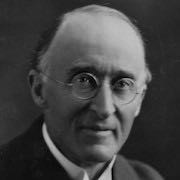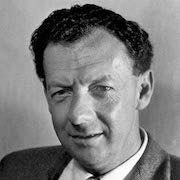Philip Arnold Heseltine (30 October 1894 – 17 December 1930), known by the pseudonym Peter Warlock, was a British composer and music critic. The Warlock name, which reflects Heseltine's interest in occult practices, was used for all his published musical works. He is best known as a composer of songs and other vocal music; he also achieved notoriety in his lifetime through his unconventional and often scandalous lifestyle.
As a schoolboy at Eton College, Heseltine met the British composer Frederick Delius, with whom he formed a close friendship. After a failed student career in Oxford and London, Heseltine turned to musical journalism, while developing interests in folk-song and Elizabethan music. His first serious compositions date from around 1915. Following a period of inactivity, a positive and lasting influence on his work arose from his meeting in 1916 with the Dutch composer Bernard van Dieren; he also gained creative impetus from a year spent in Ireland, studying Celtic culture and language. On his return to England in 1918, Heseltine began composing songs in a distinctive, original style, while building a reputation as a combative and controversial music critic. During 1920–21 he edited the music magazine The Sackbut. His most prolific period as a composer came in the 1920s, when he was based first in Wales and later at Eynsford in Kent.
Through his critical writings, published under his own name, Heseltine made a pioneering contribution to the scholarship of early music. In addition, he produced a full-length biography of Frederick Delius and wrote, edited, or otherwise assisted the production of several other books and pamphlets. Towards the end of his life, Heseltine became depressed by a loss of his creative inspiration. He died in his London flat of coal gas poisoning in 1930, probably by his own hand.











